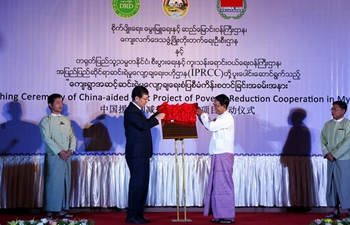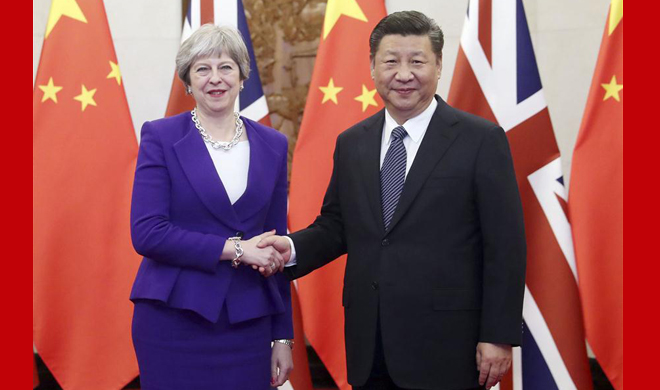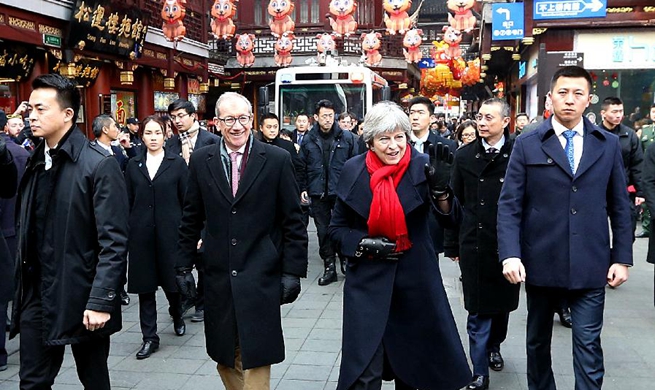BEIJING, Feb. 2 (Xinhua) -- Listening to an Economy 101 class on Qingting FM while commuting to the office, watching a live stream panel discussion on modern art on Lizhiweike after work, or raising questions on PhD applications at Zhihu Live outside class... In China, hundreds of millions of people are willing to pay for these educational opportunities.
A survey published in People's Daily this week estimated that about 292 million Chinese would pay for extra knowledge from online educational programs and Q&A platforms in the new year.
In 2015, an estimated 48 million Chinese paid for video or audio educational programs, Q&A sections on websites or mobile applications. That number tripled in 2017, jumping to 188 million.
Yang Ran, a clerk at China International Exhibition Center, is one of those looking for more education. As a classical music lover, he paid 199 yuan (31 U.S. dollars) for a one-year audio course accessed via mobile phone.
"The paid audio program edited by professional musicians is targeted at amateurs like me and helps me better enjoy and understand classical music," said Yang.
According to the survey, cultural programs were the the most popular paid educational content, accounting for 23 percent, followed by parenting, personal development, economics, and business.
People's Daily said more Chinese understand the value of knowledge and are ready to pay for intellectual property rights.
Massive open online courses (MOOCs), web-based distance learning programs designed for large numbers of students, are another mode of learning that has taken off in China as the country embraces distance learning, especially for people living in remote areas.
The Ministry of Education said there are more than 10 MOOC platforms operating in China, and over 460 universities and colleges have introduced more than 3,200 online courses through those platforms, with more than 55 million viewers. Also, over 200 Chinese online courses are available on international MOOC platforms.
"China has the largest number of online courses in the world. The country leads the world in MOOC construction," said Wu Yan, head of the Department of Higher Education at the ministry.
As well as the online development of the education industry, traditional ways of learning continue to be important in China.
China's retail book sales totaled 80.3 billion yuan in 2017, up 14.55 percent year on year, according to a report issued at the Beijing Book Fair last month.
Sales through online channels grew by 25.82 percent year on year, and brick-and-mortar book shops also saw sales increase by 2.33 percent due to China's efforts to encourage people to read, the report said.
The Chinese authorities have showed great support in encouraging education and everyday learning. In the report delivered at the 19th Communist Party of China (CPC) National Congress in October, the CPC promised to "improve continuing education, step up efforts to build a learning society, and promote the well-rounded development of all our people."
China's first library law took effect on Jan. 1, requiring local governments to increase investment in public libraries, listing them in their budget and development plans.
Libraries are encouraged to apply modern technology including digitalizing content and improving online services, better protecting ancient books, and promoting traditional culture.
According to another survey conducted by China Youth Daily, 69.4 percent of the 2,000 interviewees said they would visit libraries more often after the new law.
So far China has more than 3,100 public libraries and around 50 private libraries opened by individuals, enterprises, public institutions, social groups or other organizations, according to the Ministry of Culture.
"I have a stronger desire to learn more when sitting in a library," said Zhang Cheng, a college student in Beijing.

















